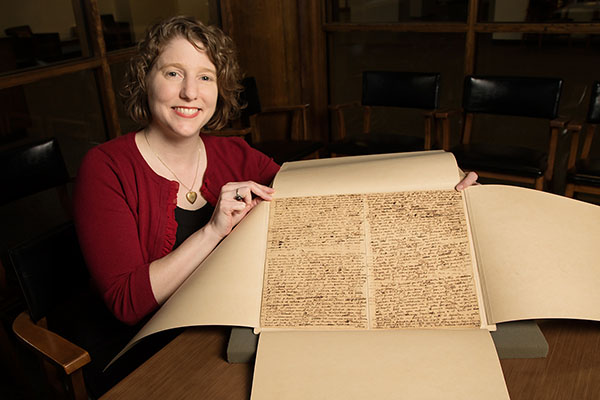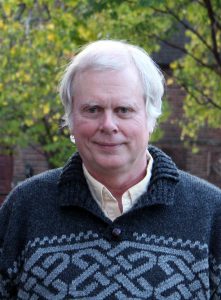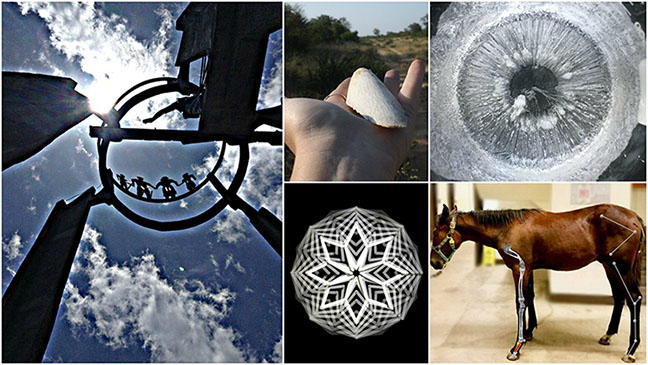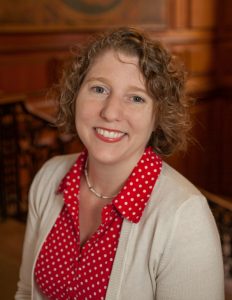
News release courtesy of the Illinois News Bureau:
The Rare Book and Manuscript Library at the University of Illinois has acquired a manuscript written by Sir Isaac Newton that provides instructions for making the philosopher’s stone, a substance thought to have special powers of transformation.
The “Opus Galli Anonymi” is Newton’s Latin translation of a French work on making the philosopher’s stone, with corrections and notes by Newton based on his own scientific work. The library bought the manuscript at auction for $275,000, thanks to a donation by Jim and Lionelle Elsesser of St. Louis, who are Illinois alumni and supporters of the University Library.
One of the strongest areas in the Rare Book and Manuscript Library’s collection is the history of science, said Lynne M. Thomas, the head of the library.
“We have a lot of materials on early scientific work,” she said. “We are at our heart an agriculture and engineering school. Our collections of early books dealing with agriculture, horticulture, animal husbandry, science and engineering are quite strong. It’s been an area of interest and expertise for our faculty for more than a century.”
The history of science, natural history and mathematics collection holds more than 7,000 volumes and the mathematics collection is ranked as one of the three most significant in the U.S. Among the documents in the collection are a nearly comprehensive collection of early works by the Greek mathematician Euclid and Newton’s “Principia Mathematica.”
The newly acquired Newton manuscript “provides additional context for scientific exploration in the 16th and 17th centuries, and the fact that it was not considered unusual for a scientist of Newton’s perspective to explore alchemy side by side with the physical and mathematical work he was doing,” Thomas said. “It is interesting seeing science and legend side by side.”
The philosopher’s stone was thought to be a substance that would turn base metals into precious ones, such as lead into gold, and also cure illness and grant immortality.
“This is evidence of (Newton) going down a scientific cul-de-sac that didn’t produce the intended aim but that led to information on how scientific failures lead to new discoveries,” Thomas said
Lionelle Elsesser said she is “excited about the sense of history, uniqueness and rarity of the material. I hope it does play an important part in someone’s scholarship. We couldn’t be more delighted with the acquisition.”
Jim Elsesser said the acquisition is appropriate as Newton was known as the father of chemistry and Illinois has a strong chemistry department.
“You can’t help but be moved. To see a document like this, written by Newton, you have to be impressed,” he said.
The couple said the University Library was an important factor in their education and careers. Jim Elsesser received degrees in business at the U. of I., and Lionelle Elsesser received hers in library and information sciences.
“The Library is one of the jewels in the crown for the university,” said Lionelle Elsesser. “When you are in school, you kind of take it for granted. It’s when you leave – for us, anyway – you realize, ‘Wow, that was some library.’ It’s really magnificent.”
The Elsessers made a $500,000 donation to the Rare Book and Manuscript Library to be used for materials for special collections. The library has not yet determined what to acquire with the remaining amount of the donation. Thomas said the Elsesser’s donation allowed the RBML to consider items that are not usually within its price range to acquire.
“It’s fantastic to have the freedom to leap on this wonderful thing and get it for the collection,” Thomas said. “It’s both wonderful and daunting simultaneously, because you want to do right by the donors and make sure they’re happy with the choice we’ve made, and you want to get something that’s a good, strong addition to the collection and makes sense in the context of what we do.”
The manuscript is made up of four sheets of paper folded in the middle to make eight leaves. It must be translated into English, it needs some conservation work and it must be fully catalogued and integrated into the collection, Thomas said. The most important consideration is how to house the fragile document so that it is stable and wear and tear on it will be minimized, she said.
“Because we know lots and lots of people will want to see this, we’re going to work with the conservation department here at the University Library to make sure we’re housing it in a way that will maintain its physical integrity as well as make sure it’s publicly available to as many people as possible,” Thomas said.
It won’t be on display but will be housed in the Rare Book and Manuscript Library collection and will be available to view upon request. Access to it will be somewhat restricted, as is the case with items that are quite fragile and valuable, Thomas said.
The manuscript will eventually be digitized so scholars can access it online. However, many will still want to see it in person. There are physical attributes that can’t be conveyed well digitally, Thomas said, such as the quality and thickness of the paper, an indication of how expensive it was to produce; the type of ink used; and the color.
“You can’t feel a digitized object. You can’t smell a digitized object. The tactile experience of handling something that was handled by Sir Isaac Newton is something you can’t replicate with a digitized copy,” she said.
The Rare Book and Manuscript Library will host a public event in the summer or fall to unveil the manuscript.
“This was a wonderfully serendipitous thing, where an item of great relevance to scientists and also a point of interest to the general public becomes available. It also has a lot to tell us about how scholarship worked and about creating science at a level of technology radically different than ours,” Thomas said.
“We are deeply grateful to the Elsessers for their gift,” she said. “They made it possible for us to return an important scientific document to the public domain. They have benefited the public through their generosity.”



